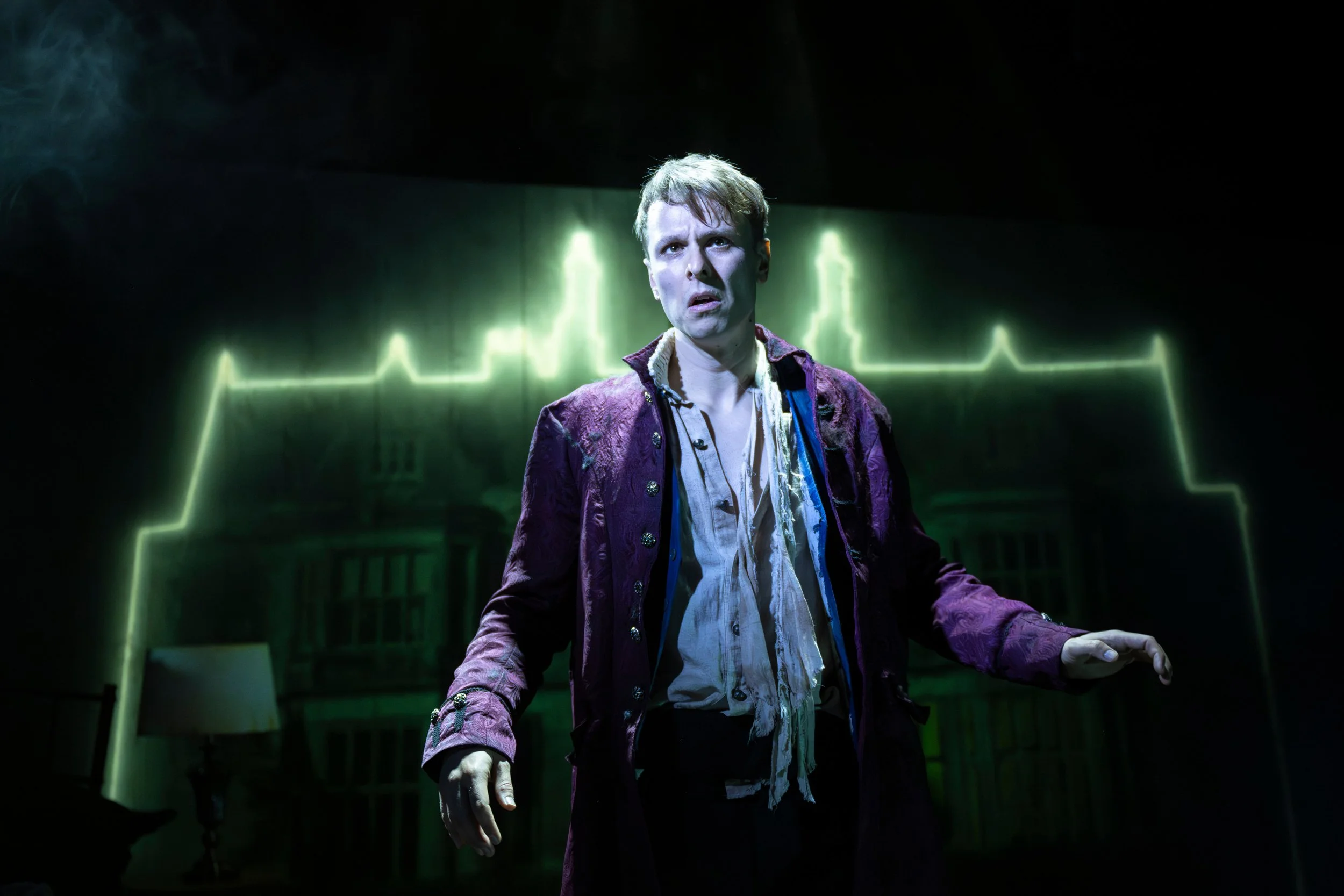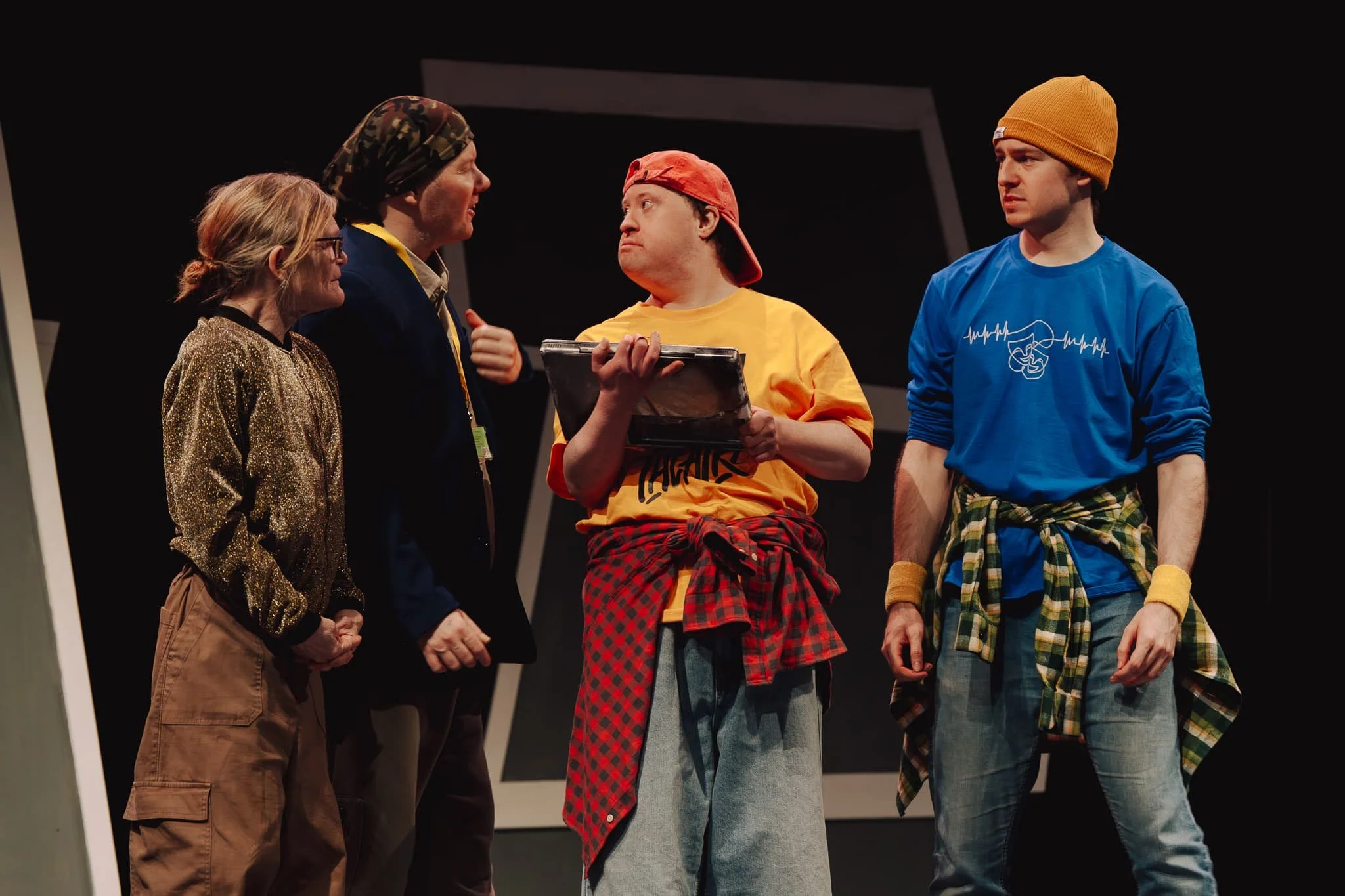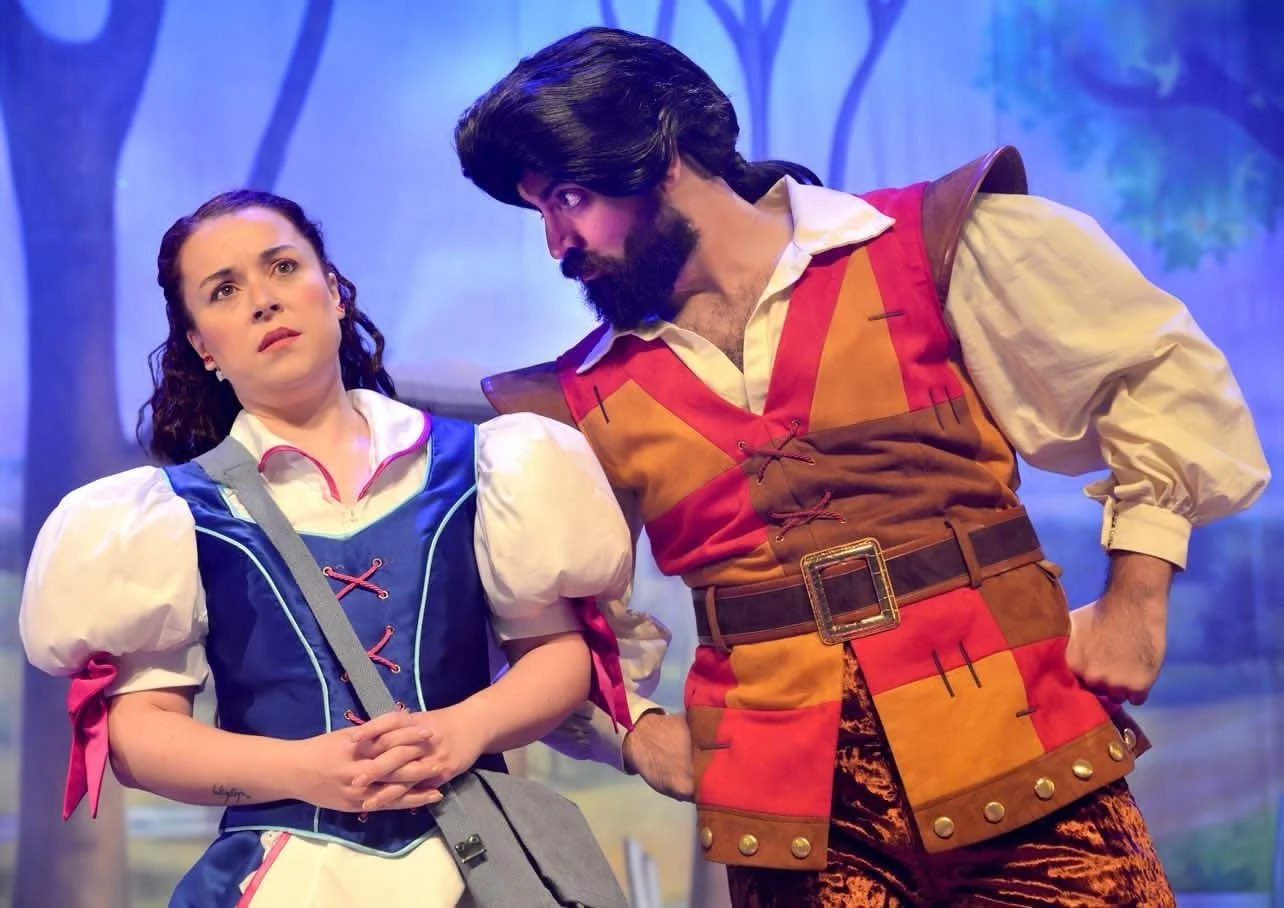When We Were Young, Geez a Break Productions Review
Written by Stacy for Theatre & Tonic
Disclaimer: Gifted tickets in exchange for an honest review
By turns riotously funny and devastatingly raw, When We Were Young, playing at Newcastle's Live Theatre, is a visceral piece of theatre that tears through nostalgia, myth, and media stereotype with brutal honesty and searing heart. Returning after its acclaimed run, this Geez a Break production does not so much depict 90s gang culture in Glasgow as drag you headfirst into it, forcing audiences to reckon with a time and place many would prefer to forget - or worse, reduce to a caricature.
Set against the dark, pulsating backdrop of Glasgow’s east end during the apex of the city’s gangland notoriety, the play follows a close-knit crew of teens trying to carve out meaning, status, and escape through violence, bravado, and misguided loyalty. It’s easy to expect the clichés - tracksuits, knives, swagger - but what When We Were Young delivers instead is a shatteringly human portrait of young people trapped in a system that chews them up before they even know who they are.
Written with verve and honesty by Liam Lambie (who also stars), the play explores the psychology of gang culture - not as an abstract problem, but through the flesh-and-blood lives of one tight-knit group of pals stumbling through the chaos of adolescence, violence, and impossible loyalty.
Leading the pack is Mooney (Liam Lambie), the de facto leader of the crew. Swaggering and sharp-tongued, Mooney is all attitude until he isn’t - until you glimpse the boy beneath the bravado. Lambie’s performance is magnetic, built on micro-shifts in expression and body language that make it impossible to look away. He’s tough, sure, but he’s also scared. And that tension drives much of the drama.
Next to Mooney is his younger brother Tam (Ross McAree), the wee yin with a big heart and a tongue that never stops. McAree gives Tam an utterly endearing vulnerability. He’s the one who still laughs like a kid, believes in love, and whose descent into fear and disillusionment hits the hardest. His heartfelt monologue - tender, funny, and quietly devastating - strips away the bravado, exposing a boy still clinging to hope in a world that offers none. By the heartbreaking finale of Act 1, which left more than a few eyes brimming with tears, Tam's journey has cut deep.
Gee (Elliot McLean) is Mooney’s best friend - loyal to the bone, even when that loyalty comes at a cost. He’s sharp, quick-witted, and full of restless energy, often the spark that keeps the group moving. But beneath the swagger is a young man quietly dreaming of something more - a life beyond the gangs, where he can earn an honest living and make something of himself. McLean balances Gee’s humour and charm with a simmering frustration, capturing the tension between who he is and who he hopes to become. His bond with Mooney is charged with affection, history, and unspoken conflict - and as the cracks begin to show, it’s Gee’s struggle to hold onto both his future and his friendship that hits hardest.
Joe (Euan Ferguson) rounds out the group as the quiet, loyal soldier - steadfast to the point of frustration. His need to belong is palpable, driving a devotion that at times feels more desperate than dutiful. Ferguson does excellent work in this more restrained role, imbuing Joe with a quiet intensity that simmers beneath the surface. He’s the kind of lad who follows orders not just out of respect, but out of a deep fear of being left behind
But this isn’t just a lads’ story. The women in the play are strong in their own right. Michaela (Dionne Frati), Mooney’s sharp, no-nonsense girlfriend, cuts through the group’s antics with a grounded perspective. She doesn’t just ‘stand by her man’- she challenges him, loves him, and ultimately forces him to change. Meanwhile, Sammy (Candace Nicholson), Gee’s on-again-off-again flame, brings fiery intelligence and a brutal honesty that never lets the boys off easy.
And then there’s Mags (Clare Rooney), Mooney and Tam’s mam, who threatens to steal the whole show with just one scene. Rooney brings grit, warmth, and absolute heartbreak to a woman worn down by the choices around her. Her confrontations with her eldest son are devastating - love delivered like a slap across the face.
What elevates this production above other gritty, ‘urban’ plays is its refusal to moralise or sensationalise. There are no easy answers offered. No real villain to pin blame on. This isn’t a play about bad kids doing bad things - it’s about kids with no map, no exit, and no sense that they deserve better. It’s a political play that never preaches, and a deeply personal one that never begs for pity. Whether you lived through Glasgow’s turbulent 90s or have only read the tabloid stories, this production will change how you see that world. It might even change how you see the young men and women still trapped in its shadow.
When We Were Young is not just about gang culture. It’s about masculinity, loss, hope, and the human cost of poverty and neglect. It dares to look past the headlines and instead ask, what could have been? It’s funny as hell, but heartbreakingly real - definitely not to be missed.
★★★★

















